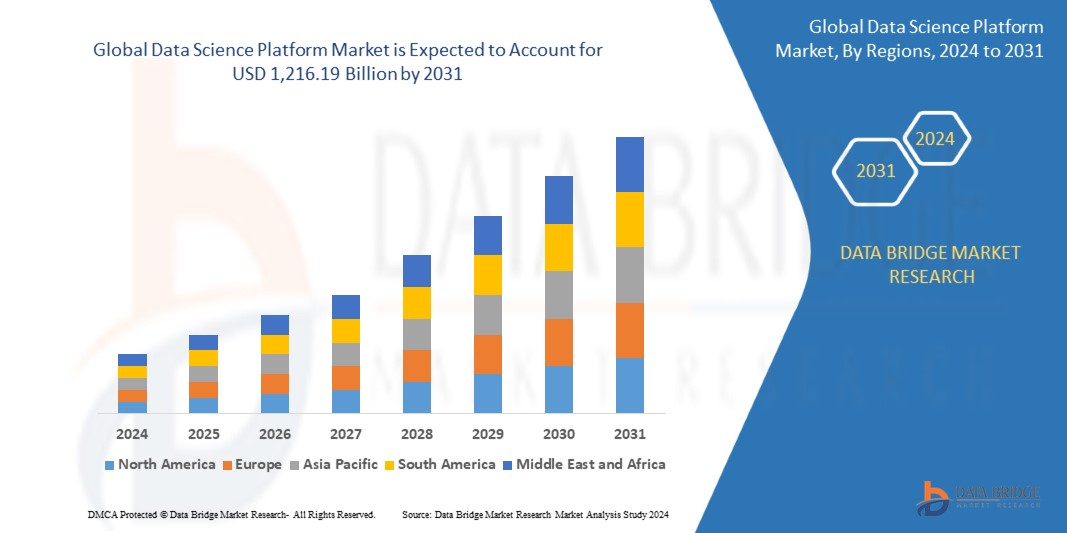Introduction
As businesses today generate and have access to unprecedented amounts of data, the potential for actionable insights has expanded dramatically. However, making sense of vast, complex data in a way that drives business growth requires more than raw information; it demands a sophisticated approach to analyzing and applying insights effectively. A data science platform provides this foundation, enabling enterprises to leverage data-driven decisions that can transform their growth trajectory. Here’s a comprehensive look at how a data science platform can propel enterprise growth and what specific benefits it brings.
Definition
An integrated environment that offers data scientists the infrastructure, tools, and libraries they need to plan, organise, and carry out data-driven projects is known as a data science platform. It facilitates team collaboration while allowing users to gather, examine, and display huge datasets. For effective model creation and deployment, these platforms frequently include a variety of machine learning methods, data pipelines, and programming languages (including Python, R, and SQL). Organisations can more easily use data insights for decision-making in an organised and repeatable manner by utilising data science platforms’ features like version control, automation, and scalability.
Centralized Data Access and Management
A data science platform centralizes data from multiple sources, making it accessible to all authorized users across the enterprise. This unified access promotes collaboration, speeds up data retrieval, and improves decision-making accuracy.
- Easier Access to Data Across Departments: With data centralized on a single platform, employees can access the information they need without navigating multiple databases or dealing with complex data permissions.
- Streamlined Data Management: A data science platform provides a single interface for managing data, reducing duplication and errors, and making data governance more efficient.
Enhanced Data-Driven Decision Making
Making informed decisions based on accurate and timely data is critical for enterprise growth. Data science platforms provide tools for analyzing large volumes of data, helping businesses derive actionable insights that can guide strategic decisions.
- Predictive Analytics for Future Planning: By analyzing historical data, a data science platform can provide predictive insights, helping companies forecast trends and prepare for future scenarios.
- Real-Time Decision Support: Many platforms offer real-time analytics, enabling companies to react quickly to emerging trends, customer demands, or market shifts.
Improved Collaboration Across Teams
Data science platforms facilitate collaboration among data scientists, business analysts, and other stakeholders. By sharing insights and collaborating on the same platform, teams can work more cohesively and share a unified vision.
- Cross-Functional Teamwork: With a shared platform, data scientists, developers, and business stakeholders can collaborate more effectively, ensuring everyone has access to the latest insights and can contribute to data-driven initiatives.
- Enhanced Communication: Many platforms offer integrated communication tools that allow users to comment, share feedback, and track changes, fostering a more collaborative and transparent workflow.
Increased Operational Efficiency
Automation tools within data science platforms significantly reduce the manual workload associated with data processing, enabling teams to focus on higher-value tasks. This efficiency can directly contribute to enterprise growth by freeing up resources for innovation and strategic initiatives.
- Automated Data Processing: Data science platforms can automate data collection, cleaning, and analysis, reducing time spent on repetitive tasks and improving data accuracy.
- Reduced Resource Consumption: By optimizing data operations, enterprises can reduce their reliance on extensive human and computational resources, lowering costs and improving ROI.
Scalability to Meet Growing Data Demands
As enterprises grow, so do their data needs. A robust data science platform offers scalability, allowing businesses to handle increasing volumes of data without sacrificing performance or accessibility.
- Adaptability to Increasing Data Loads: With scalable infrastructure, enterprises can accommodate growing data sets and more complex analytics as the business expands.
- Flexibility for New Tools and Integrations: Data science platforms are often built to integrate with new tools and accommodate emerging technologies, enabling businesses to stay ahead in a rapidly evolving digital landscape.
Security and Compliance Management
Data privacy and security have become essential considerations, especially as regulations like GDPR and CCPA govern how data is managed. Data science platforms come with built-in security measures that help enterprises maintain compliance while protecting sensitive information.
- Data Encryption and Access Control: Platforms often provide encryption and strict access control measures, ensuring data is secure and only accessible to authorized personnel.
- Regulatory Compliance: By adhering to industry standards, a data science platform helps companies meet compliance requirements, minimizing the risk of costly fines and reputational damage.
Accelerated Innovation and Competitive Advantage
With access to a powerful data science platform, enterprises can experiment with new ideas, test hypotheses, and optimize their operations based on data-backed insights. This agility enables companies to stay ahead of competitors who may not yet be as data-savvy.
- Faster Product Development Cycles: By analyzing customer feedback and market trends, companies can innovate and bring new products to market more quickly.
- Enhanced Customer Insights: Understanding customer behavior through advanced analytics enables companies to personalize their offerings, improving customer satisfaction and loyalty.
Better Return on Investment (ROI) from Data Initiatives
Investing in data science yields measurable returns when it’s well-integrated with enterprise goals. By offering detailed insights and streamlining processes, a data science platform maximizes the ROI of data-related initiatives.
- Cost Savings from Improved Efficiency: Reducing time spent on data collection and manual analysis lowers costs, allowing companies to invest more in growth-oriented activities.
- Revenue Growth through Data Monetization: For some businesses, a data science platform opens up possibilities for monetizing data by creating valuable insights for external stakeholders, turning data into an additional revenue stream.
Key Features to Look for in a Data Science Platform
When implementing a data science platform, it’s essential to choose one that aligns with your enterprise’s goals and growth strategies. Here are some crucial features to consider:
- Advanced Analytics and Machine Learning: The platform should support both descriptive analytics (what happened) and predictive analytics (what’s likely to happen) to cover a broad range of use cases.
- User-Friendly Interface: A user-friendly platform ensures that team members at all technical skill levels can access and leverage the data effectively.
- Integration Capabilities: Look for a platform that can integrate with existing databases, CRMs, and other tools, ensuring smooth data flow across the enterprise.
- Data Visualization Tools: Effective data visualization simplifies complex data, making it easier for stakeholders to understand insights and take action.
- Robust Security Protocols: With data privacy a top concern, opt for a platform that emphasizes security with features like encryption, access control, and activity tracking.
Growth Rate of Data Science Platform Market
The market for data science platform was estimated to be worth USD 158.59 billion in 2023 and is expected to grow at a compound annual growth rate (CAGR) of 29.00% from 2024 to 2031, reaching USD 1,216.19 billion.
Read More: https://www.databridgemarketresearch.com/reports/global-data-science-platform-market
Conclusion
The implementation of a data science platform represents a strategic investment in enterprise growth. By centralizing data, enabling cross-functional collaboration, improving efficiency, and facilitating innovation, a data science platform becomes a core component of modern business strategy. Enterprises looking to remain competitive and harness the power of their data are turning to these platforms as essential tools for sustainable growth.




